7 GAYS FOR MITT
It was such a relief, after months of uncertainty, when Mitt Romney finally secured enough delegates to win the Republican nomination. After months of having my support pushed into the closet by the campaign, I was looking forward to actively working with them to help make the conservative Romney palatable to average Americans.
I expected that after spending the entire primary season kowtowing to the anti-gay, culturally out-of-touch crowd, that the campaign would be excited to finally be able to show that Romney was in touch with real life in 2012. It was a no-brainer for me to think that they would want some type of very public engagement with members of the gay community, because gay people are a real part of life in America now. Public engagement would help to show Romney as a culturally modern and inclusive leader. That would also balance out all of the public appearances he made with anti-gay leaders, including speaking at the Family Research Council's conference, during the primary campaign.
GOProud was the perfect fit for that because I had already personally endorsed him, we had solid conservative credentials, and we weren't asking for any policy changes or concessions in exchange for our support. We were on message with his campaign's theme, too--what the gays care about is jobs and the economy. We were already poised to officially endorse him, but it would have been helpful for us, from a public relations standpoint, to have some sort of engagement, preferably a meeting, ahead of that.
Our support would help him, but it would help us too. We knew, from firsthand experience, what happens when you don't endorse the nominee. Both Chris and I worked at Log Cabin in the years after 2004, when Log Cabin did not endorse Bush's reelection because of his support for the Federal Marriage Amendment. Log Cabin was completely shut out by Karl Rove and others at the White House after Bush won. That's what happens when you upset the others and go against the groupthink on your team. They box you out. We were determined not to be in that position again, because we knew how important it was to have a gay voice with access to the White House when it was needed. Romney was facing an opponent with a failed economic record, and he had a good chance of winning.
It was equally important for Romney to publicly acknowledge our contribution, and now it was time to ask for that. The Romney campaign had kept us at arm's length for months, rarely acknowledging my attempts to engage with them. Now I expected a partnership of sorts. It was time for them to engage with us. For me, it seemed like a no-brainer, a win-win situation.
Back in 2000, after Bush had secured the nomination, he met with the Austin 12 group of openly gay Republicans in Texas. Bush emerged from that meeting and spoke to the press, saying he was a "better person" for having met with the group. That helped to solidify his credentials as a "compassionate conservative." I knew that Romney needed some sort of moment like that, too.
I reached out to the deputy campaign manager, Katie Packer-Gage, and asked for a meeting with top campaign officials in hopes of eventually securing a private meeting with Romney and some sort of public event with the campaign. Based on my experience over the last six months, I thought it was unlikely that Romney would do a joint news conference or anything similar to the press event that Bush had done with the Austin 12 in 2000. They were too afraid of backlash from the crazies for that, but a private meeting with him and something public with a surrogate or senior staff seemed like a reasonable request. Actually, I thought it was a minimal request.
I would have even been happy with a private, off-the-record meeting, and the ability just to say that we had met Romney before we endorsed him. I got a phone conversation with Katie. Seriously. A phone call with the deputy campaign manager was all they were willing to do. No meeting with the candidate.
A friend of mine who grew up in Michigan with Katie had briefed me about her ahead of my call with her. My friend is a longtime Republican operative who had spent time working in the political trenches with Katie. He thought that I should exercise a bit of caution with Katie. He said that while he wouldn't characterize her as "anti-gay," she did come from a hardcore evangelical Christian background and was very plugged in to the social conservative world. Once Romney secured the nomination, he hired most of Rick Santorum's senior staff, so the campaign was full of the crazies. I knew that their point of view was well represented inside the campaign, and from what my friend told me, Katie was one of them too.
The call with Katie was one of the strangest conversations I've had in politics. She grilled me about GOProud's and my conservative credentials, asking "What do you consider conservative?"
After all of the media attention we had received over the last few years, I didn't know that there was anyone on the right who didn't know about us. She acted as if she had never heard of us. I'll never forget the condescending tone in her voice when she said, "What does the word 'conservative' mean to you, Jimmy?" I obliged her with an hour-long history of our organization and my background.
It was a pretty humiliating phone call. I felt like a child being talked down to. Katie talked to me like this was my first day at politics school. The whole time I was thinking that I could teach her a thing or two.
I thought, doesn't she get it? Doesn't she understand that the rest of the country thinks Mitt hates gay people and I was giving her a painless way of proving that he doesn't? Was the whole campaign so out of touch with modern culture that they didn't understand how important that was to do?
In the end, Katie said that there would be no meeting with Romney because the campaign didn't want to look "etch-asketch," a reference to a gaffe made a couple of weeks earlier by the campaign's senior strategist Eric Fehrnstrom when explaining how the campaign would shift away from pandering to the crazies and essentially start over now that the general election had begun. It didn't matter that we weren't asking for any changes in Romney's anti-gay policy positions. The mere appearance of talking to gay people was a bridge too far for him.
Romney was in a good position to beat President Obama because of Obama's failed record and Romney's background as a competent manager and businessman, but it was important for him to gain trust and connect with people on a personal level. Romney had to find ways to prove that he cared about all Americans. The problem the Romney campaign had, and the problem Republicans have today, is that only focusing on issues that affect everyone, such as jobs and the economy, ignores the fact that some issues uniquely affect some people and not others. Only focusing on the issues that affect everyone shows that you only care about issues that affect you, and that you lack the ability to see things from another perspective, or even recognize that people who aren't like you face challenges that you don't. Talking about those issues that are unique to some of us doesn't mean the politician is playing "identity politics"; it shows their ability to see things from other perspectives. The ability to empathize is the most important characteristic a politician can demonstrate in today's multicultural reality. Too many on the right fundamentally lack that ability.
Obama couldn't run his campaign on his economic record, so he would have to run it on cultural issues and portray Romney as an out-of-touch, straight, rich, white guy. Engaging with gay Americans was a great way for Romney to counter that. I couldn't get it through Katie's head how important it was for Romney to show that he wasn't the anti-gay homophobe the Democrats wanted to portray him as. Then it dawned on me. Maybe I was wrong about Romney--maybe he was truly a homophobe.
I started to think that Romney's pro-gay, inclusive record and rhetoric as governor was just an act in order to get elected in liberal Massachusetts. I began to see that he was, at his core, really an anti-gay bigot. I had heard stories about Ann Romney not being comfortable with gay people, and now I was starting to realize that maybe Mitt wasn't either. That just had to be the real issue, I thought.
That was the beginning of my doubts about Mitt Romney as a person. I was starting to think that maybe there was some thing to the Democrats' assertion that the Romneys didn't care about anyone who wasn't like them. Sure there are lots of public examples of the Romneys' generosity toward other straight, white Mormons, but there is little on record to show any diversity in their compassion. He further confirmed my suspicions about him with his speech at Liberty University, the school founded by the anti-gay culture warrior, the late Jerry Falwell. I was disappointed that he would even speak there, and it seemed to me politically stupid for him to do it after he had secured the nomination. He was where he was comfortable. He was in his element at what is considered the mother ship of the anti-gay industry. I watched the speech on television and it was clear that he was with his people there at Liberty, and his people didn't like my people. That appearance sent a clear message to people like me: we weren't part of Mitt Romney's vision of America.
 Excerpted from No Hope: Why I Left the GOP (And You Should Too) by Jimmy LaSalvia (Skyhorse Publishing, October 2015).
Excerpted from No Hope: Why I Left the GOP (And You Should Too) by Jimmy LaSalvia (Skyhorse Publishing, October 2015).
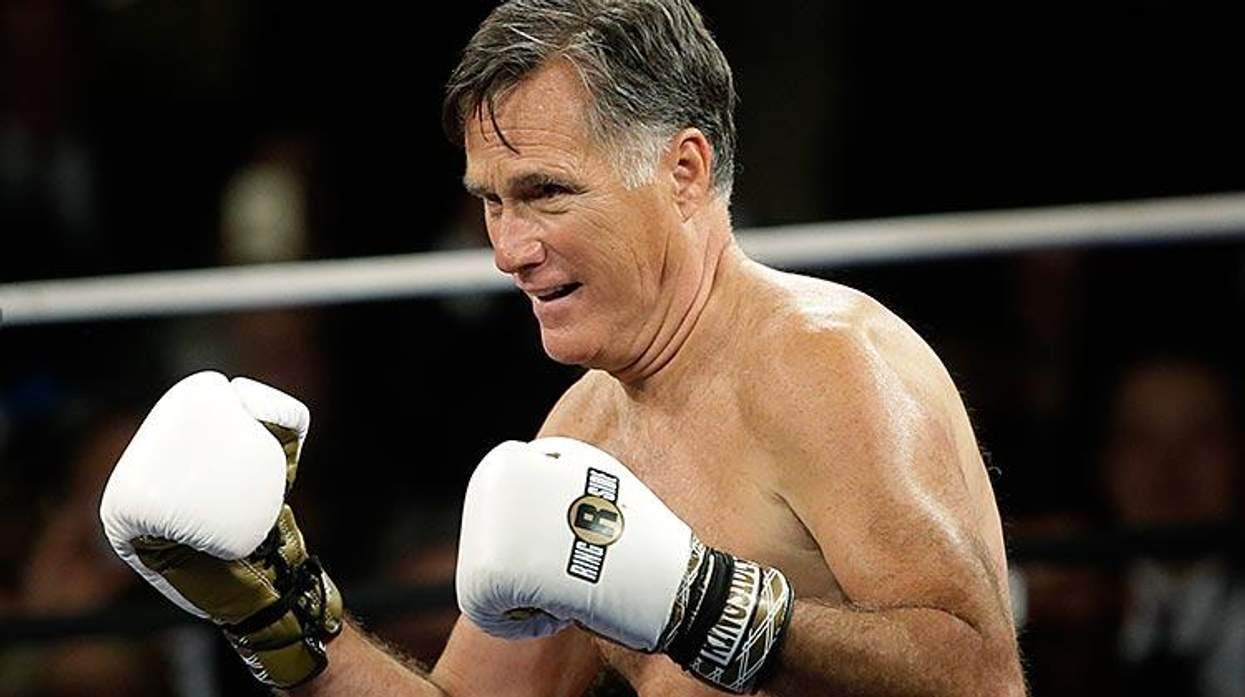

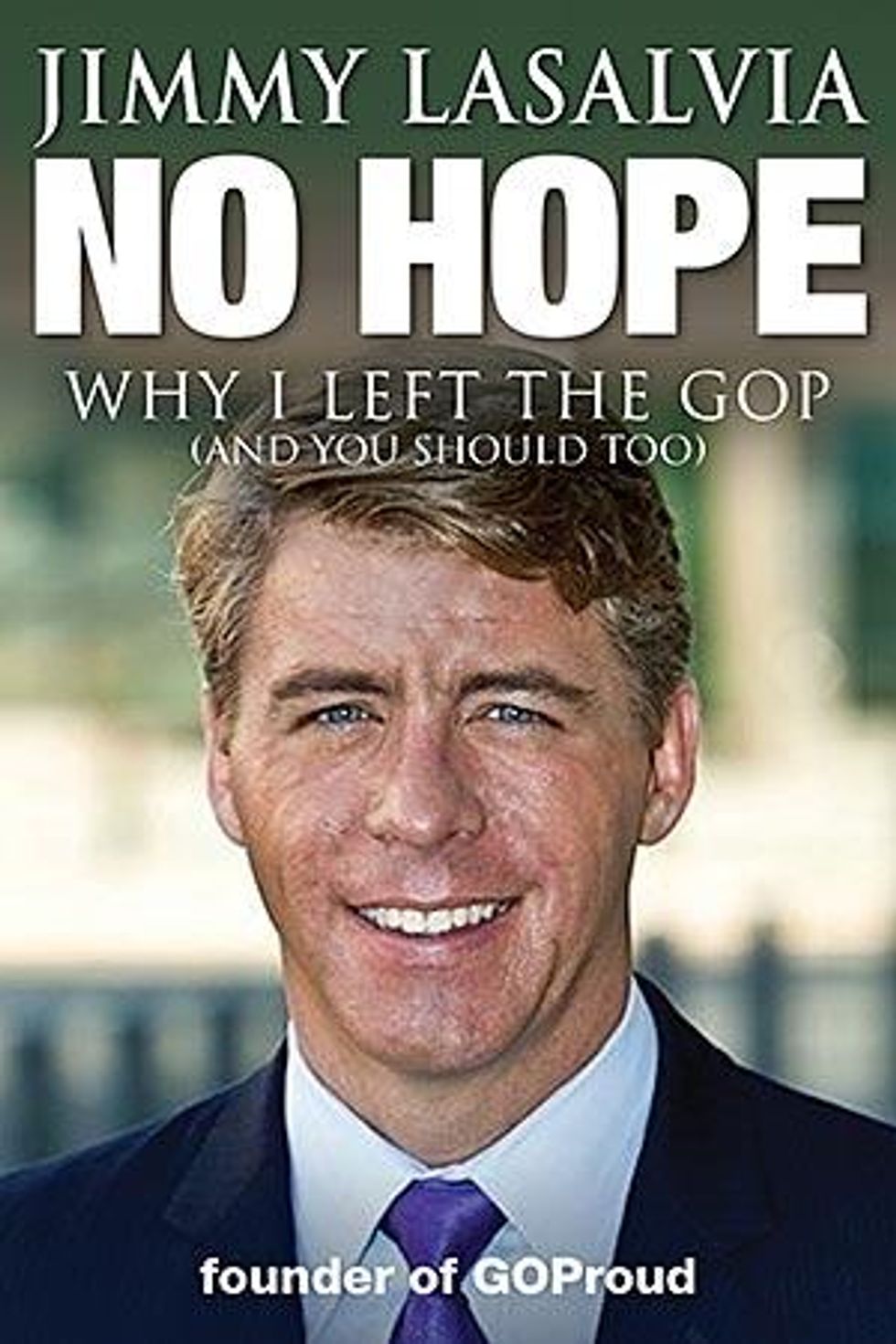 Excerpted from No Hope: Why I Left the GOP (And You Should Too) by Jimmy LaSalvia (Skyhorse Publishing, October 2015).
Excerpted from No Hope: Why I Left the GOP (And You Should Too) by Jimmy LaSalvia (Skyhorse Publishing, October 2015).



























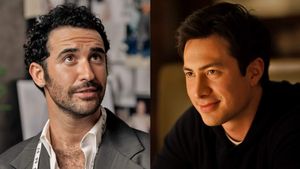









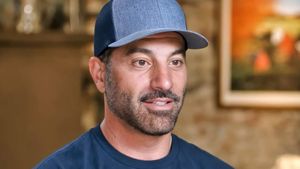




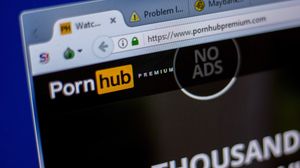

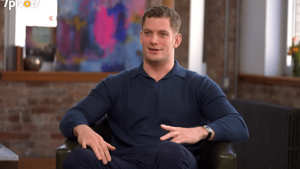





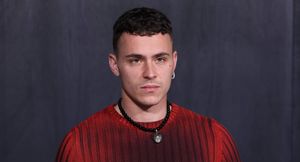






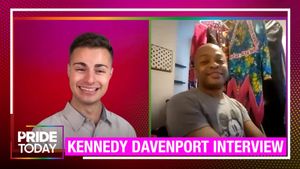





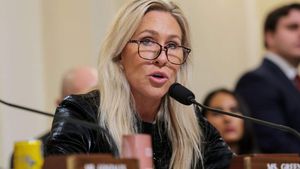

Charlie Kirk DID say stoning gay people was the 'perfect law' — and these other heinous quotes